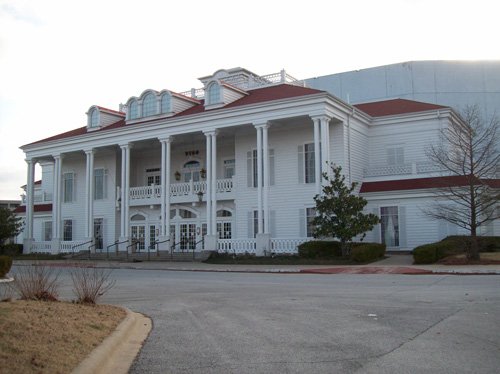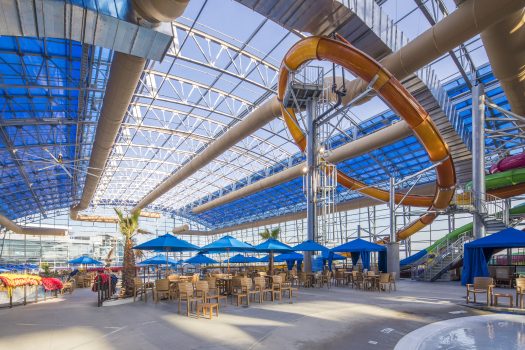September 20, 2010
by Eric Hansen, AIA, ISHC, published by Hotel Online

The number of green lodging certification programs in the hospitality industry has increased dramatically since the mid 1990s. The industry is populated with global programs, national programs, state programs, and yes, even some city and regional programs. These certification programs, while aimed at the same objective, good sustainability practice, are all vying for the same lodging facility’s attention. There are a wide variety of choices when selecting a green certification program. In a recent article in Green Lodging News, (www.greenlodgingnews.com) publisher Glenn Hasek gave advice to yet another entrant into the green certification arena. His advice: “you better hurry up: [the competition is] really starting to pull away in the race to gain the attention of owners and operators here in the United States”. Glenn’s comments prompted two questions: What does the green lodging certification arena look like these days? What types of recommendations do we make to our clients? In today’s green environment it is important to address the various types and purposes of the certification programs available, and assess key attributes about each program.
WHAT ASPECTS OF MY FACILITY CAN BE GREEN CERTIFIED?
The types of green certifications available are as varied as the types of lodging products available. Hotel & Leisure Advisors identifies four primary areas that are the focus of green certification programs. These broad categories consist of certifications for the overall building structure, the building fixtures themselves, building operations, and overall management practices.
Overall building certifications ensure the structure has been constructed in accordance with strict guidelines relating to building materials, products, energy efficiency, interior environment quality, conservation, and basic sustainable practices. Of the choices in certification, the USGB LEED Certification is the most prevalent. New construction developments considering going green, typically look at achieving this type of certification.
Lodging facilities can have a certification based upon the installation and use of permanent eco-friendly fixtures such as low flow toilets, low flow shower heads, and energy efficient lighting fixtures. The individual fixtures have labels such as Green Seal or EPA Energy Star. This type of certification is prevalent in existing structures that make the choice to go green.
Certifications are available for properties that exercise sustainability practices throughout their day to day facility operations. Programs such as linen and towel re-use, non-occupied guest room energy monitoring, and water conservation in landscape maintenance fall under these sustainable practices. All green certification programs require some type of sustainable efforts in the operation of a lodging facility.
The fourth area of certification identifies how the lodging entity manages their business in relation to their community and their environment. Falling under this category is the decision of management to purchase supplies such as guest toiletries, and paper and cleaning products from eco-friendly suppliers. In addition, how management participates in education and promotion of sustainable practice is also recognized as having the potential for certification. Green Globe Certification and The Green Key certification have a focus in rewarding these types of management practices.
TYPES OF GREEN CERTIFICATIONS
In our studies for hotels, we recommend the development try to obtain and participate in a green lodging certification program. The evolution of sustainable property characteristics has taken root in the hospitality industry as the benefits are becoming more pronounced. We recommend developers analyze the appropriate certification program for their particular project, and weigh the benefits against the costs as a common sense approach. General benefits of participating in a green program include reduced energy consumption (equating to reduced operating costs) while providing positive eco-friendly publicity, as well as promoting good resource stewardship.
While not an all-inclusive list, the more prominent green lodging certifications include:
USGBC LEED® certification: (www.usbgc.org/leed) The Leadership in Energy and Environmental Design (LEED) Green Building Rating System™ is the nationally accepted benchmark for the design, construction, and operation of high performance green buildings. LEED gives building owners and operators the tools they need to have an immediate and measurable impact on their buildings’ performance. LEED promotes a whole-building approach to sustainability by recognizing performance in five key areas of human and environmental health: sustainable site development, water savings, energy efficiency, materials selection, and indoor environmental quality. There are four levels of certification: certified, silver, gold, and platinum. LEED Version 3 was launched in 2009.
The Green Key®: (www.green-key.org) The Green Key is an international eco-label for leisure organizations including hotels, conference centers, youth hostels, and campsites. The Green Key pursues four goals: environmental education, environmental preservation, economical management, and marketing strategy. Carlson Hotels, Hyatt Hotels, and Accor North America are participants in this program. The state of Indiana has also chosen this program to meet their green initiatives.
EPA’s Energy Star label: (www.energystar.gov) Once a product-only oriented certification program, the Environmental Protection Agency’s Energy Star program can now be applied to an overall building structure. Structures qualify through meeting strict energy performance standards. Energy Star labeled properties use less energy, have reduced operating expenses, and reduced greenhouse gas emissions. To qualify, the property must score in the top 25% based on EPA’s National Energy Performance Rating System. As of summer 2010, 423 U.S. lodging properties have achieved the Energy Star label.
Green Suites® Certified Green Hotel program: (www.greensuites.com) This program is an environmental marketing program designed to provide recognition and support for hotels seeking green certification. Main goals of the program are linen reuse, water efficiency, use of non-toxic cleaning chemicals, lighting retrofits, and energy management. As a ratings-based program, the property gets recognized on the level of ‘green-ness’ it achieves. Certification is offered in a one to five leaf rating.
Green Seal certification: (www.greenseal.org) This tiered certification is presented to those lodging properties that achieve various levels of compliance with GS-33, Green Seal Environmental Leadership Standard for Lodging Properties. Properties qualify through a demonstration of sustainable practices in waste minimization, energy efficiency, conservation and management, management of fresh water resources, waste water management, hazardous substances, and environmentally sensitive purchasing. Properties are awarded either a bronze, silver or gold level of certification. The city of Los Angeles through its Green Business Initiative, as well as Chicago through its Green Hotels Initiative, have both challenged their hotels to obtain Green Seal certifications.
Audubon Green Leaf™ Eco-Rating Program: (www.greenleaf.auduboninternational.org) This is a tiered certification program where the property can achieve anywhere from one to five ‘Green Leafs’. The extent of environmental measures taken by the property is evaluated according to the commitment of water quality, water conservation, waste minimization, resource conservation, and energy efficiency. The State of New York has chosen this program to meet state-wide hospitality ‘greening’ goals.
EcoRooms® & EcoSuites™: (www.ecorooms.com) Certified properties in these programs follow stringent eco-criteria including the use of Green Seal certified cleaning and paper products, small bathroom amenity sizes, towel and linen reuse program, recyclable waste program, energy efficient lighting, high efficiency plumbing, and 100% smoke-free properties. The properties that achieve this certification are listed on the EcoRooms website as a tool for travelers who want a ‘greener hotel search’. Currently, 16 properties from 12 states in the U.S. are certified under this program. This program has been recently recognized by the American Hotel and Lodging Association and the American Automobile Association.
Green Globe Certification: (www.greenglobecertification.com) This program is a certification label for sustainability in both management and operations. Certification criteria cover several areas. These areas include sustainable management and social economic, cultural heritage, and environmental aspects of sustainability. The Crowne Plaza Atlanta Perimeter at Ravinia is the first hotel in the U.S. to achieve a Green Globe Certification.
The number of certification programs is continually growing, and the most successful programs will be the ones whose brand currency provides true value to the property through quantifiable results. Expedia has also entered the green certification arena. In addition, many states offer their own versions of green certifications, based upon the individual state’s green policies. In 2006, there were a total of seven states that had some form of green certification. In 2010, this number has grown to 29 states, a four-fold increase in just four years.
SUMMARY
According to the USGBC® Green Venue Selection Guide, green buildings use 26% less energy, they emit 33% less carbon dioxide, they use 30% less indoor water, and they send 50% to 75% less solid waste to landfills and incinerators. While the results of going green vary dramatically with the level of chosen engagement in sustainability, the benefits of being green are quantifiable. Whatever certification program is chosen for a particular lodging facility, the fact is that participation in a program provides a positive impact for not only the property, but it reflects well on the hospitality industry as a whole.
Author
Eric B. Hansen, AIA, ISHC is the Director of Development Services for Hotel & Leisure Advisors, a national hospitality consulting firm. Mr. Hansen is active in performing appraisals, market feasibility studies, property condition assessments, and impact studies for hotels, resorts, waterparks, golf courses, conference centers, and other leisure properties.
He was formerly employed by Cole + Russell Architects, Inc. in Cincinnati. Mr. Hansen received his Bachelor of Architecture from the University of Cincinnati in 1989. He became a licensed architect in 1992 and was invited to membership in the International Society of Hospitality Consultants in 2002. He received a certification in Financial Management of Hotels from Cornell University School of Hotel Administration, Executive Education program, in 2007.
Mr. Hansen offers over 16 years of experience in the hospitality industry and has been the responsible architect on over 65 hotels and conference centers of various brands, including full-service, extended-stay, select-service and economy chain scales. Mr. Hansen has worked with various major hotel company corporate offices and has extensive knowledge of brand criteria.
As a hospitality consultant with a foundation in consulting, architecture, financial management, and appraisal theory, Mr. Hansen brings well rounded expertise to various H&LA assignments and assists H&LA clients with their pre-development, consulting, and valuation needs.
To read this article on Hotel Online, click here.


